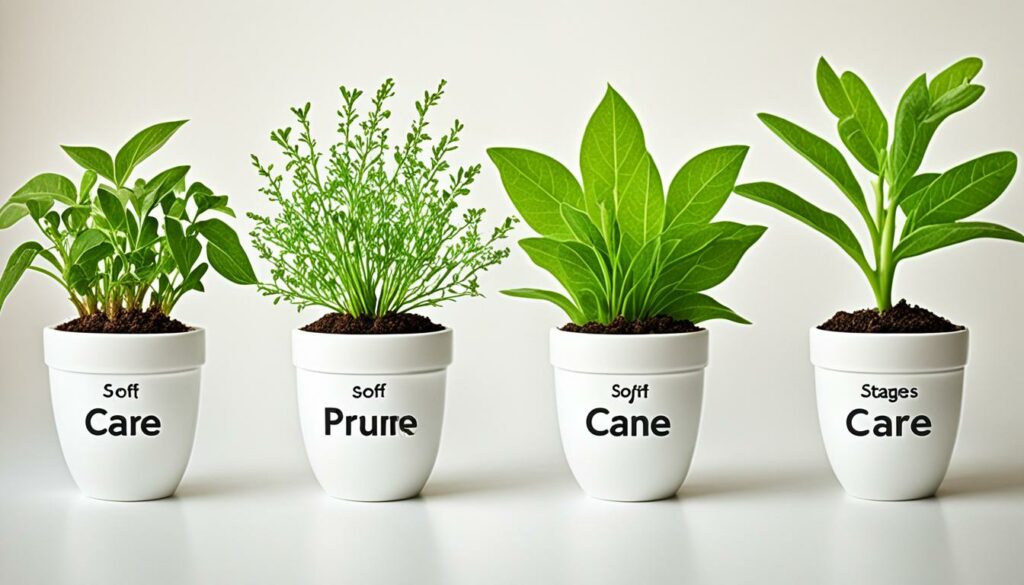Have you ever felt like you’re running on empty, desperately seeking a pause button for life? I’ve been there, juggling work, family, and personal commitments until I hit a wall. That’s when I discovered the transformative power of self-care practices. It wasn’t just about bubble baths and face masks; it was a complete shift in how I approached my well-being.
Self-care is more than a buzzword—it’s a lifeline in our fast-paced world. By prioritizing your needs, you’re not being selfish; you’re ensuring you have the energy to show up fully in all areas of your life. From mindfulness techniques to stress management strategies, the importance of self-care practices cannot be overstated.

As you navigate the complexities of daily life, remember that taking care of yourself isn’t a luxury—it’s a necessity. By integrating self-care into your routine, you’re investing in your physical health, mental clarity, and emotional resilience. It’s time to unveil the secrets to a more balanced, fulfilling life through the power of self-care.
Key Takeaways
- Self-care is essential for overall well-being and life balance
- Mindfulness techniques can significantly reduce daily stress
- Regular self-care practices boost physical and mental health
- Stress management strategies are crucial for long-term wellness
- Self-care is not selfish—it’s necessary for sustainable living
- Integrating self-care into daily routines leads to improved life quality
Understanding the Importance of Self-Care Practices
Self-care is key to our emotional and physical health. It’s about doing things that make you feel good and keep you healthy. This includes eating right, exercising, and spending time with people you care about.
Defining Self-Care and Its Components
Self-care means looking after your body, mind, and feelings. It’s about finding activities that help you relax and stay healthy. These can be anything from eating well to enjoying hobbies with friends.
The Role of Self-Care in Overall Well-Being
Self-care is crucial for your mental and emotional health. It lowers stress, makes you feel happier, and gives you more energy. By focusing on self-care, you can handle life’s ups and downs better and keep your relationships strong.
| Self-Care Area | Benefits | Example Activities |
|---|---|---|
| Physical | Improved health, more energy | Exercise, healthy eating |
| Mental | Reduced stress, better focus | Reading, puzzles, learning new skills |
| Emotional | Better mood, increased resilience | Journaling, talking with friends |
Common Misconceptions About Self-Care
Some think self-care is selfish or a luxury. But it’s really a must for everyone. It’s not about pampering yourself; it’s about meeting your basic needs for health and happiness. Self-care is a regular habit that supports your overall well-being and mental health awareness.
“Self-care is giving the world the best of you, instead of what’s left of you.” – Katie Reed
Understanding self-care is the first step to a healthier life. By making it a priority, you’re investing in your long-term health and happiness.
The Science Behind Self-Care: Why It Matters
Self-care has become more popular for its benefits on stress and emotional health. Studies show that doing self-care regularly can make you feel better mentally and improve your life quality.
Exercising, meditating, and staying connected with others can lower stress and anxiety. These activities also increase serotonin and dopamine, making you feel happier and more emotionally balanced.
Research shows that self-care changes the brain. For example, regular meditation makes parts of the brain related to emotions and self-awareness thicker. This helps with mental health.
Self-care is not self-indulgence, it’s self-preservation.
Self-care is key to staying healthy in body and mind. By managing stress well, you can handle life’s ups and downs better. This leads to a better overall well-being.
| Self-Care Practice | Benefits | Impact on Well-being |
|---|---|---|
| Regular Exercise | Reduces stress hormones, boosts endorphins | Improves mood, energy, and physical health |
| Meditation | Lowers blood pressure, reduces anxiety | Enhances emotional regulation and focus |
| Social Connection | Increases oxytocin, reduces isolation | Boosts happiness and sense of belonging |
Learning about self-care helps you make better choices for your daily life. This leads to better emotional health and awareness of your mental state.
Physical Self-Care: Nurturing Your Body
Taking care of your body is key to feeling good overall. It means doing things that make your body strong and healthy. Let’s look at some important ways to take care of your body for a better balance between work and life.
Exercise and Movement
Exercise is a must for your health. Add fun activities like walking, cycling, or dancing to your routine. Try to do at least 30 minutes of moderate exercise every day. This will help increase your energy and happiness.
Nutrition and Hydration
Eating well and drinking enough water are key to caring for your body. Eat foods full of fruits, veggies, whole grains, and lean proteins. Remember to drink lots of water all day to keep your body working right.
Sleep and Rest
Getting enough sleep is crucial for your body and mind. Aim for 7-9 hours of good sleep each night. Make a bedtime routine and make your bedroom a place where you can relax well.
- Set a regular sleep schedule
- Limit screen time before bed
- Create a relaxing bedtime routine
- Ensure your bedroom is cool, dark, and quiet
By adding these self-care habits to your daily life, you’re taking big steps towards better health. This will help you find a better balance between work and life.
Mental Self-Care: Cultivating a Healthy Mind
Taking care of your mental health is key for feeling good overall. By using mindfulness and stress management daily, you can make your mind healthier. This helps you grow personally.
One great way to care for your mind is through mindfulness. These practices keep you in the moment and aware. This reduces anxiety and helps you focus better. Try to meditate or breathe deeply for a few minutes each day. This calms your mind and lowers stress.
Managing stress is also important for your mental health. Find out what stresses you out and learn how to deal with it. You might:
- Practice better time management
- Set achievable goals
- Stay active physically
- Get support from friends, family, or a therapist
Doing things that help you grow personally can also improve your mental health. Try learning new skills, reading inspiring books, or finding a hobby you love. These activities make your mind work harder and give you a sense of pride and worth.
“The mind is like a garden. It requires regular care and attention to flourish.”
Remember, taking care of your mental health is a long-term effort. Be kind to yourself and celebrate your small wins. By sticking with these methods, you’ll build a strong, healthy mind. This mind can handle life’s ups and downs better.
Emotional Self-Care: Honoring Your Feelings
Emotional self-care is vital for your overall health. It means paying attention to your feelings and being kind to yourself. Let’s look at ways to improve your emotional health and become more resilient.
Practicing Emotional Awareness
Start by checking in with yourself every day. Ask, “How am I feeling right now?” This simple habit can really help your emotional health. Keeping a mood journal can also help you see patterns in your feelings and what triggers them.
Healthy Expression of Emotions
It’s not good to keep your feelings inside. Find healthy ways to express them. This could be talking to a friend, writing, or doing something creative. It’s okay to cry or feel angry sometimes. The important thing is to handle these feelings in a healthy way.
Building Emotional Resilience
Being resilient means you can get through hard times. Here are some self-compassion exercises to help you:
- Practice positive self-talk
- Celebrate small wins
- Set realistic goals
- Learn from setbacks instead of dwelling on them
By focusing on emotional self-care, you’re taking a big step towards better mental health. Remember, it’s a journey. Be patient with yourself as you grow and learn.
Social Self-Care: Nurturing Relationships
Building strong connections is key for your well-being. Social self-care keeps a healthy balance between work and life. It also helps you grow personally. Let’s see how nurturing relationships can make your life better.

Healthy relationships are essential for a good life. They offer emotional support, lower stress, and help you grow. By spending time with others, you build a network that backs your dreams.
It’s important to set boundaries in relationships. Saying no to some social events lets you focus on yourself. This balance lets you grow personally without getting too caught up in social life.
“The quality of your life is the quality of your relationships.” – Tony Robbins
It’s key to balance social time with alone moments for your well-being. Here’s a simple guide to keep this balance:
- Schedule regular catch-ups with friends and family
- Join clubs or groups related to your interests
- Volunteer for causes you care about
- Set aside time for solo activities and self-reflection
Social self-care is not just about how many people you hang out with, but the quality of those connections. Deep relationships help you grow and build healthy habits. By taking care of your relationships, you get a support system that makes your life happier and more balanced.
| Social Self-Care Activity | Benefits |
|---|---|
| Group exercise classes | Physical health, social interaction |
| Book club | Mental stimulation, shared interests |
| Family game nights | Bonding, stress relief |
| Cooking with friends | Skill-sharing, quality time |
Spiritual Self-Care: Connecting with Your Inner Self
Spiritual self-care connects you with your inner self and brings deeper meaning to life. It’s about taking care of your spirit and understanding your values. Let’s look at some ways to boost your spiritual health.
Mindfulness and Meditation
Mindfulness helps you stay in the moment and lowers stress. Spend a few minutes each day focusing on your breath. This simple act can soothe your mind and make you more aware of yourself.
Meditation is a key tool for spiritual growth. Begin with short sessions and slowly increase the time. Guided meditations can be a good starting point as you start.
Exploring Personal Values and Beliefs
Reflect on what’s most important to you. What are your core values? How do they guide your choices? Writing in a journal can help you uncover these questions and clear up your beliefs.
Finding Meaning and Purpose
Personal growth activities can help you find your life’s purpose. Think about volunteering for something you believe in or doing a hobby you love. These actions can make you feel fulfilled and connected to something bigger than you.
Remember, being kind to yourself is key in this journey. Spiritual self-care is a personal path, and there’s no one right way to do it.
| Spiritual Self-Care Practice | Benefits | Getting Started |
|---|---|---|
| Mindfulness Meditation | Reduces stress, improves focus | Start with 5 minutes daily |
| Journaling | Clarifies thoughts and values | Write for 10 minutes before bed |
| Volunteering | Provides sense of purpose | Find local opportunities online |
Work-Life Balance: Integrating Self-Care into Daily Life
Getting a good work-life balance can be tough in today’s fast world. But it’s key for your health and doing well at work. Adding self-care to your daily life helps you handle stress better and build healthy habits.
First, set clear lines between work and personal life. Have a special place for work and stick to certain hours. Don’t check work emails or take calls when you’re off work. This helps you recharge and focus on what’s important to you.
Focus on what’s most important with your time. Use a planner or digital tool to keep your day organized. This includes time for work, personal tasks, and taking care of yourself. Remember, taking care of yourself is not selfish. It’s vital for keeping your energy up and doing well at work.
- Schedule regular breaks throughout your workday
- Practice mindfulness or meditation during lunch
- Engage in physical activity after work to decompress
- Set aside time for hobbies and social connections
Using these stress management tips can really help your work-life balance. Make self-care a must-do part of your daily life. This way, you’ll be ready to tackle work challenges and enjoy your personal life more.
“The key is not to prioritize what’s on your schedule, but to schedule your priorities.” – Stephen Covey
Remember, finding work-life balance is a journey. Be kind to yourself and adjust as you go. With steady effort, you’ll find a lifestyle that supports your career and personal happiness.
Overcoming Obstacles to Self-Care
It’s key to understand the value of self-care, but many find it hard to make it a part of their life. Let’s look at the usual hurdles and how to beat them to focus on your health.
Common Barriers to Self-Care
Many people find it tough because of lack of time, guilt, or motivation. Work, family duties, and what others expect often come first, leaving self-care last on the list.
Prioritizing Your Well-being
To get past these hurdles, see self-care as a must-do, not just a nice-to-do. Make time for it, just like you would for work or family. Remember, taking care of yourself helps you take better care of others.

Building a Sustainable Routine
For a lasting self-care routine, be consistent and flexible. Begin with small, daily personal growth steps. As you get used to putting your needs first, you can do more and more.
| Time Frame | Self-Care Activity | Benefits |
|---|---|---|
| Morning | 10-minute meditation | Reduced stress, improved focus |
| Midday | Short walk outdoors | Increased energy, better mood |
| Evening | Journaling | Emotional processing, self-reflection |
By tackling these challenges and using smart strategies, you can build a self-care routine that boosts your health and growth.
Conclusion
Self-care is key to your overall well-being. It helps keep your body, mind, and heart healthy. Remember, taking care of yourself isn’t selfish. It’s essential for your health and happiness.
We’ve looked at different parts of self-care in this article. From exercise to emotional awareness, each part helps your mental health and emotional well-being. Adding these to your daily life means you’re caring for yourself and your future.
Now, it’s time to act on what you’ve learned. Begin with one self-care activity this week. It could be sleeping in a bit longer, going for a short walk, or doing some mindfulness. As you see the good results, you’ll want to add more self-care to your life. Your path to better health and happiness begins today!
